Activists
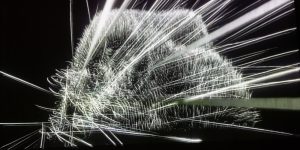
Topographie Digitale
DataPaulette (FR)
Topographie Digitale is an interactive installation. This landscape uses electrically functionalized and pleated textiles as sensitive surfaces reacting to touch to interact with a video-projected digital clone of this scenery.
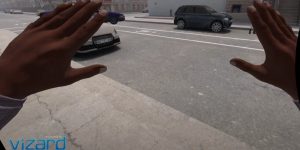
Addressing Ethics, Bias and Colonial Legacies in Emerging Media
Courtney D. Cogburn (US), Moderator: Jesse Damiani (US)
In this talk, we will examine the relationship that emerging technologies have with the past, ranging from biased algorithms to the unequal degree of access that has been granted to different communities—and by extension how they have been respectively represented in media and technology. As art created with these technologies increasingly enters the public discourse, how can artists thoughtfully engage these media as tools to subvert the legacies of colonialism rather than unwittingly reinforce them?
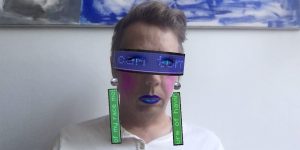
Digital Drag
Jeremy Bailey (US)
Face filters are widely used. In the last months we have been online in front of the camera more than ever. The question is what face-filter to wear. Choose fabulous looks using the latest tools tips and tricks to augment reality Transgress and queer your identity, become a digital drag unicorn or whatever Nxt you can imagine. Famous New Media Artist Jeremy Bailey will fly you through step by step to create and perfect your own AR look, so you can stand out from the crowd at your upcoming zoom party or corporate webinar. Let’s all become famous new media artists!
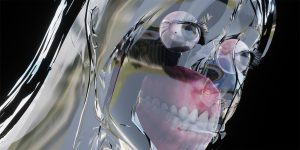
Autonomy & AI: Who is using Who?
Sari Depreeuw (BE), Francesco D’Abbraccio aka LOREM (IT)
Creative Artificial Intelligence and Generative Adversarial Networks (GANs) are by now daily used in the production of images, videos and art. This creative relationship is exciting yet not very clear. Largest part of production feeds into popular deep fakes and face swapping tendencies. We do feel a layer of suspense and concern when it comes to ownership of AI produced artworks. For this reason, we are meeting an expert in digital law, AI media artist, to discuss the role of AI in society today and tomorrow.
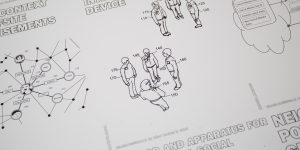
Sociality
Paolo Cirio (IT)
This artwork documented over twenty-thousand patents of socially manipulative information technology. In Sociality, Cirio collected and rated Internet inventions submitted to the U.S. patent office. Subsequently, he invited the public to share, flag, and ban the technologies designed to monitor and manipulate social behaviors.
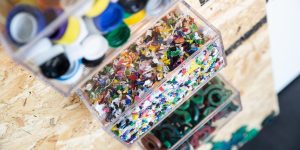
plasticpreneur
doing circular (AT)
The Austrian social & environmental start-up plasticpreneur by doing circular develops, produces and sells simple mobile plastics recycling machines and teaches social entrepreneurship skills that can be used to transform plastic waste into new products.

Perception iO
Karen Palmer (GB)
Perception iO (Input Output) is the future of Law Enforcement. An Artificial Intelligence data set emotionally responsive to the participant and potentially their bias.
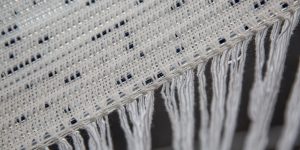
c o m p u t e r 1. 0
Julian Goldman (US), Victoria Manganiello (US) aka SOFT MONITOR
Full or empty; color or clear; zero or one; under or over – c o m p u t e r 1.0 imagines a display for the future, by looking at displays from our past. Artists Julian Goldman and Victoria Manganiello create a large-scale textile woven by hand using hollow polymer tubing and natural fiber thread. A patterned series of colored liquid/oil/air pixels will be pumped into the tubes in a sequence dictated by data from adjacent motion sensors and a series of computer-controlled valves, air compressors, and pumps. This textile will function as a lo-fi computer display, made with ancient natural materials and techniques juxtaposed with contemporary digital technologies.
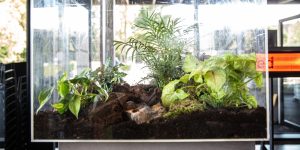
EDEN – Ethics - Durability - Ecology - Nature
Olga Kisseleva (RU)
The project EDEN Ethics - Durability - Ecology – Nature touches on a range of issues, including the protection of endangered plant species and interspecific communication between living subjects that are placed in the “inhuman”category.

Design by Decay, Decay by Design
Andrea Ling (CA)
Design by Decay, Decay by Design is a series of artifacts that exhibit designed decay. They were done for the 2019 Ginkgo Bioworks Creative Residency on how to design a world without waste. As an architect and artist, I recognize that most of what I create goes to landfill. If that is the case, let me design waste that I can live with, garbage that retains some desirability as it degrades in sight and on site. Let me design waste as nature designs it, not only as the product of breakdown and destruction but also as input for renewal and construction.
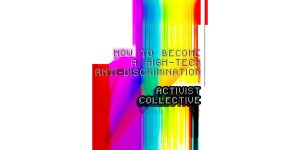
Nushin Isabelle Yazdani und Internet Teapot (Karla Zavala und Adriaan Odendaal): [d/r]econstructing AI - dreams of visionary fiction and zine-making
How to Become a High-Tech-Anti-Discrimination Activist Collective
With this workshop we investigate the structures behind algorithmic decision making systems, discuss why their design is normative, and how AI systems reinforce structural discrimination. We embark on a speculative journey and discuss how to design to create a more just world. Which artists inspire us? Which values are important to us? We want to collect our thoughts and creative outputs in a zine.

LAB ON STAGE (Adriana Torres Topaga, Martyna Lorenc and Andrea Maria Handler): Phantom Data in our bodies and imagination
How to Become a High-Tech-Anti-Discrimination Activist Collective
This workshop undertakes a performing arts’ approach. Our departure is the embodiment of imagination and perceptual processes. With somatic exercises and performative games, we notice the data flowing in from our bodies: sensation, image, emotion or memory. Imagination has its own training dataset - therefore a specific priming/bias/imprint. We look for practices of becoming aware of HOW we imagine things and what escapes our field of attention.

Astrid Mager und Hong Phuc Dang: How to create your own AI device with SUSI.AI - An Open Source Platform for Conversational Web
How to Become a High-Tech Anti-Discrimination Activist Collective
The workshop introduces SUSI components like SUSI’s technology stack, its wiki-like skill editor and hardware prototype; participants work together to create a simple bot, develop new skills and test them. A reflection on data bias and algorithmic discrimination invites to collectively think about creating non-discriminatory digital technologies.

Doris Allhutter: “When I encountered discriminating IT-systems and did not want to take it anymore” - deconstructing affective entanglements in society-technology relations
How to Become a High-Tech Anti-Discrimination Activist Collective
This workshop uses the deconstructive method of mind scripting to understand the grip that even technologies that we reject may have on us. Using our own memories as an experimental resource we will explore how discrimination and privilege materialize in our practices. This aims at developing collective agency and activisms.

Safiya Umoja Noble: Algorithms of Oppression - How Search Engines Reinforce Racism
How to Become a High-Tech Anti-Discrimination Activist Collective
The landscape of information is rapidly shifting as new demands are increasing investment in digital technologies. Yet, critical scholars continue to demonstrate how many technologies are shaped by and infused with values that are not impartial, disembodied, or lacking positionality. Technologies hold racial, gender, and class politics. In this talk, Dr. Safiya Noble will discuss her recent book, Algorithms of Oppression, and the impact of technology on the public.

Lisa Nakamura: Estranging Digital Racial Terrorism After COVID
How to Become a High-Tech Anti-Discrimination Activist Collective
This talk argues that COVID-19 forced an accelerated migration to digital networks that exposed new audiences to traumatically racist digital events as well as new openings for critique and resistance.

How to Become a High-Tech Anti-Discrimination Activist Collective
IFG-LIT (AT)
New technologies have penetrated all aspects of our lives and promise a wide range of improvements and efficiencies. Contrary to general perception, though, the algorithms on which these technologies are based are neither neutral nor do they treat everyone equally.
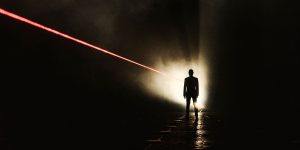
The Experimenta Garden - A Drone Opera (2015 – 2020)
Experimenta (AU)
The Experimenta Garden features the multi-platform work A Drone Opera (2015 – 2020)

Exposed Building
Michael Roland (AT), Michael Mayr (AT), Robert Holzinger (AT), Markus Vogl (AT)
By opening a maintenance hatch and hacking into the network infrastructure behind it, we acquire access to the electronic locking system. By controlling the buzzers built into the office door locks, we transform the Science Park 2 building into an orchestra and it resounds like a huge walk-in instrument. The installation playfully provokes thought about the vulnerability of modern technology and its growing risks for society.
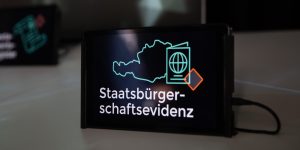
Digital Government in a Box
LIT Law Lab, Johannes Kepler University (AT)
From the “transparent citizen” and “social scoring” to AI-supported truth finding in the courtroom and machine-generated administrative notices: the digitization of administration and jurisdiction has many facets. It requires not only a consideration of what is technically possible, but also of what is legally permissible and what is desired in terms of legal policy. Against this background, the LIT Law Lab has two installations dedicated to the legal framework conditions (fundamental rights and data protection), problems and proposed solutions for a digitized enforcement.


